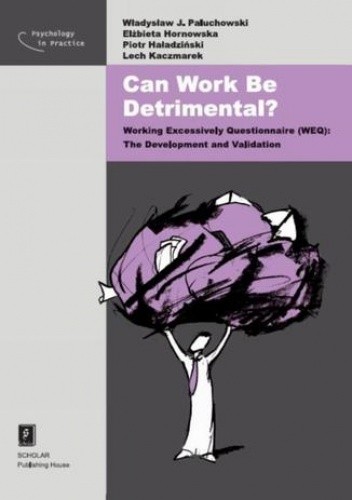Psychology in Practice
For some, excessive workload is a source of satisfaction, while for others it stems from the desire to meet one’s own and external expectations.
Sometimes a fulfilling job fulfills one’s life because it provides everything that is needed to be happy. Work can be an accepted way of escaping from one’s emotional problems. In some cases excessive workload results from the fear of losing a job and sometimes from poor work organization. Another reason to work excessively may be that it is financially worthwhile. Workaholism is a harmful consequence of excessive workload. Only deep and thorough analysis differentiates workaholism from excessive workload.
The formal structure of the monograph reflects the development of the stages of the Working Excessively Questionnaire (WEQ) in three chapters. Chapter 1 presents the relationship between excessive workload and workaholism the causes and negative effects of excessive focus on work, and possible theoretical explanations of the phenomenon of workaholism. Chapter 2 discusses the various research methods used in studies of workaholism and describes the foundation of the WEQ and the process of working on its final version. And chapter 3 discusses the correlates of the four scales of the Working Excessively Questionnaire.









Dodaj pierwszą recenzję “Can Work Be Detrimental? Working Excessively Questionnaire (WEQ): The Development and Validation”